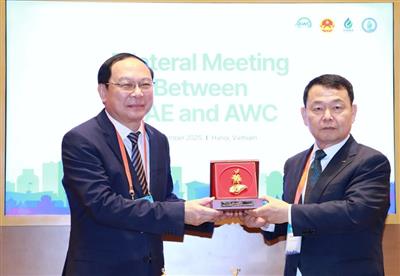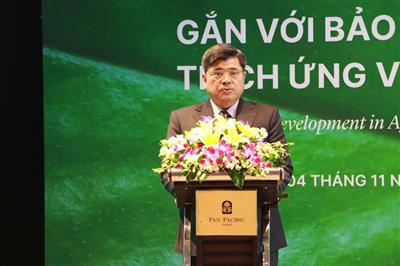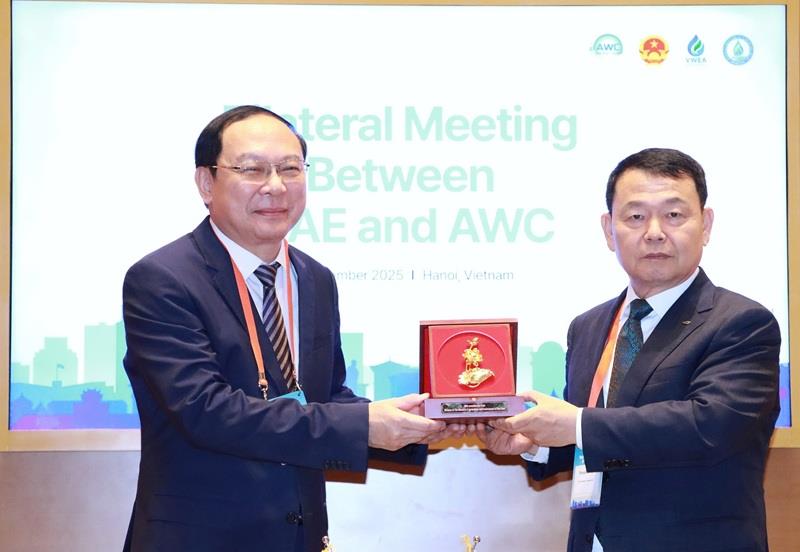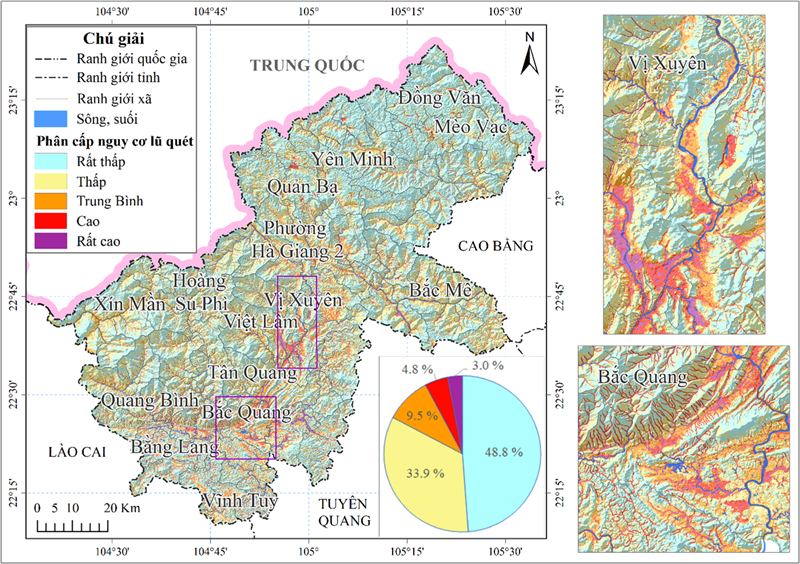
Building the institutional framework for electronic land use certificates in Vietnam’s digital transformation era
12/11/2025TN&MTAs Vietnam advances toward digital government and modern natural resource management, the land sector has emerged as a pioneering field requiring institutional, technological, and data governance reforms. A research group from the Department of Land Management under the Ministry of Agriculture and Environment, including experts Nguyen Khac The, Dinh Hong Phong, and Tran Van Tien, has conducted the study “Legal basis and requirements for institutional improvement in the implementation of electronic certificates of land use rights and ownership of assets attached to land.”

The 2024 Land Law recognizes e-Certificates as legally valid documents, with data securely stored in the National Land Information System (NLIS) and accessible via digital IDs and QR codes
The study clarifies the legal framework set out in the 2024 Land Law and Decree No. 101/2024/ND-CP, evaluates Vietnam’s implementation practices, examines international experiences, and proposes a set of coherent policy solutions to ensure legal validity, data security, and operational efficiency for the electronic Land Use Certificate (eLUC) system—an essential foundation for modern and transparent land administration.
New legal framework and research approach
The study was carried out in the context of the 2024 Land Law, Decree No. 101/2024/ND-CP, and Circular No. 10/2024/TT-BTNMT, which for the first time clearly define procedures for issuing, managing, and utilizing electronic Land Use Certificates (eLUC). This marks a significant institutional milestone as Vietnam transitions toward a unified national digital infrastructure for land management.
The researchers employed a combination of legal synthesis, comparative analysis, and empirical investigation across multiple provinces, supplemented by international benchmarking. Data sources included: (1) The current legal documents of Vietnam; (2) Provincial reports and statistical data; (3) International studies on electronic land registration and land data governance; (4) Expert opinions and practical reports from the Department of Land Management.
Through qualitative analysis, the team compared domestic legal frameworks with international models to identify institutional improvement requirements best suited to Vietnam’s conditions.
Legal framework and implementation progress of eLUC
According to Clause 21, Article 3 of the 2024 Land Law, the Certificate of Land Use Rights and Ownership of Assets Attached to Land serves as a legal document confirming the lawful rights of land users and property owners. In the electronic format, all data are centrally stored in the National Land Information System (NLIS), integrated with digital identifiers and QR codes to ensure authenticity, transparency, and security.
Article 50 of Decree No. 101/2024/ND-CP affirms that the eLUC holds the same legal validity as the paper certificate and is managed and authenticated within the national electronic system. Registration, renewal, and reissuance procedures are conducted entirely online, with applications submitted through the National Public Service Portal or provincial portals.
Importantly, the 2024 Land Law recognizes the co-existence of both paper and electronic certificates during the transition period, while standardizing a new certificate format with QR codes and unified identification numbers nationwide. This establishes a vital foundation for developing a unique real estate identifier for each land parcel, a cornerstone of modern asset management.
Pilot results and emerging benefits
Since 2024, several localities, such as Ho Chi Minh City, Hanoi, Da Nang, Quang Ninh, and Dong Nai, have piloted electronic land database management software that enables online submissions, digital authentication, and electronic delivery of results. As a result, the proportion of online applications for new issuance, replacement, and reissuance of certificates has increased significantly. Processing time for simple cases has been reduced to only 3–5 working days, compared with several weeks previously.
The adoption of eLUC has yielded clear benefits: reducing costs, time, and administrative burden; enhancing data security and preventing fraud or document loss; improving the performance of state agencies and citizen satisfaction; and ensuring greater transparency in land registration, verification, and adjustment processes.
However, the study also identifies major barriers: (1) The legal framework for conversion between paper and electronic certificates remains incomplete; (2) Data security and e-authentication systems have not yet undergone widespread testing; (3) Technical infrastructure and human resources are insufficient, particularly in rural and mountainous areas; (4) National data interoperability (among land, population, property, and tax databases) remains fragmented, lacking standardized technical protocols.
International lessons and policy implications for Vietnam
The research team examined global experiences to draw lessons for Vietnam’s institutional development:
Georgia pioneered the use of blockchain in land registration, recording hashed data on a distributed ledger to prevent fraud and enhance data immutability.
Singapore operates the INLIS platform, a centralized system that integrates land, population, and tax information to streamline transactions and enhance transparency.
The United Kingdom developed the Digital Street project, which explores blockchain and smart contracts to automate transactions, verify ownership, and reduce administrative errors.
Korea, China, the United States, and Australia focus on digitalizing cadastral data, developing GIS-based land mapping, and adopting e-conveyancing systems that integrate digital payment and settlement mechanisms.
From these examples, the authors distilled four key lessons for Vietnam: (1) Ensuring legal certainty and protecting land users’ rights must be the top priority in all digitalization processes; (2) Developing standardized, secure, and traceable technical systems is crucial; (3) Harmonizing inter-sectoral policies and establishing clear data-sharing protocols among ministries and agencies is essential; (4) Investing in human resources, staff training, and public awareness to build digital readiness and trust.
Policy directions for institutional improvement and digital advancement
Based on empirical findings and international comparison, the study proposes five key policy directions:
Refining the legal framework by issuing detailed sub-law documents defining procedures, legal validity, conversion processes, and data retention for eLUC.
Standardizing and integrating data by developing unified technical standards and connecting land databases with population, asset, banking, and taxation systems.
Ensuring information security through multi-layer authentication mechanisms, personal data protection, and international cybersecurity compliance.
Developing infrastructure and human resources by investing in national data centers, training specialized staff, and providing technical support to local authorities.
Enhancing public communication and support through awareness campaigns and online service guidance, particularly in rural and remote areas.
According to the authors, implementing electronic Land Use Certificates is not merely a technical upgrade, it represents a profound institutional reform that requires strategic vision, cross-sectoral coordination, and strong political commitment to realize the goals of national digital transformation and transparent land governance.
Viet Anh
Source: Based on the research project “Legal basis and requirements for institutional improvement in implementation of electronic land use rights and attached land asset ownership certificates" conducted by Nguyen Khac The, Dinh Hong Phong, Tran Van Tien from the Department of Land Administration, Ministry of Agriculture and Environment
















